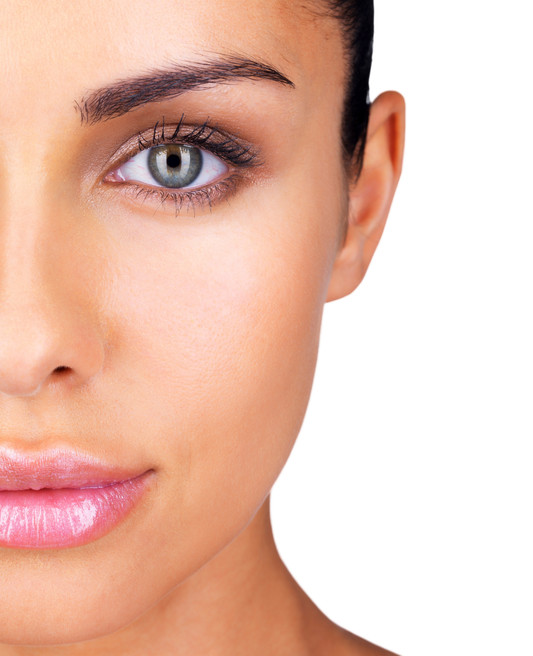<h2 style="text-align: justify;"><strong><span style="font-family: Calibri,serif;">What is Laser Resurfacing?</span></strong></h2>
<p style="text-align: justify;">Laser resurfacing rejuvenates the skin by removing old outer layers, allowing newer, younger-looking skin to emerge. It is applied for various purposes, such as removing age spots, discolorations, wrinkles and scars. It can also tighten skin. A laser is a high-energy beam of light that directly targets the damaged skin tissue. It can serve as a stand-alone treatment or be used in conjunction with other resurfacing treatments, such as chemical peels.</p>
<h2 class="western" style="text-align: justify;"><strong><span style="font-family: Calibri,serif;">Are There Different Kinds of Lasers?</span></strong></h2>
<p style="text-align: justify;">There are several different kinds of lasers, and the one that will be best for you will depend on several factors, such as your skin tone and what you are specifically looking to have treated. Some laser treatments are very powerful, and just one treatment is required, while others offer more subtle results and require multiple sessions. The technology is continually advancing to offer up beautiful skin, and according to <span style="color: #0000ff;"><span lang="zxx"><span style="text-decoration: underline;">http://robertandrewsmedical.com/</span></span></span><span style="color: #000000;">one of the latest lasers actually offers a melanin detector, which allows for even more hyper-focused treatment of problem areas, while minimizing risk to surrounding skin.</span></p>
<p style="text-align: justify;"><img class="aligncenter size-full wp-image-13499" src="https://medusamagazine.com/wp-content/uploads/2015/02/Laser-Resurfacing-FAQs1.jpg" alt="Laser Resurfacing FAQs" width="533" height="656" /></p>
<h2 class="western" style="text-align: justify;"><strong><span style="font-family: Calibri,serif;">What Conditions Can Be Treated with Laser Resurfacing?</span></strong></h2>
<p style="text-align: justify;">Laser resurfacing can be used to treat a variety of skin issues.</p>
<ul style="text-align: justify;">
<li><a name="_GoBack"></a>Reducing wrinkles around the eyes, lips or entire face</li>
<li>Removing certain types of blemishes on the face</li>
<li>Removing port wine stain birthmarks. The laser works by reducing the size of the abnormal blood vessels that cause the marks.</li>
<li>Skin growths</li>
<li>&#8216;Spider veins&#8217; of the face</li>
<li>Warts</li>
</ul>
<p style="text-align: justify;">The number of sessions required depends on the issue being treated, with some only requiring one while other may require at least three or four.</p>
<h2 class="western" style="text-align: justify;"><strong><span style="font-family: Calibri,serif;">Will Laser Resurfacing Help with Deep, Pitted Acne Scars?</span></strong></h2>
<p style="text-align: justify;">This type of scarring may not always respond well to laser resurfacing. In many cases, this treatment is combined with dermabrasion. In some cases, the skin is prepped before these procedures with either fat injections to raise the scar or scar excision for optimal results.</p>
<h2 class="western" style="text-align: justify;"><strong><span style="font-family: Calibri,serif;">Are All Skin Types a Candidate for Laser Surgery?</span></strong></h2>
<p style="text-align: justify;">All skin types are amenable to laser treatment, but people with darker skin must be extra careful in their selection of laser treatments. There is a risk of pigmentation change after laser resurfacing, but this can be managed with treatments such as bleaching creams. Minimizing sun exposure and regular use of sun screen is a must.</p>
<h2 class="western" style="text-align: justify;"><strong><span style="font-family: Calibri,serif;">What Can I Expect after Treatment?</span></strong></h2>
<p style="text-align: justify;">For more mild treatments, you may experience nothing more than a bit of redness. For more intensive laser treatments, there may be some slight discomfort and swelling. Your doctor may give you medications to manage the pain. For full-face resurfacing, your skin will be kept moist with ointments, and dressings applied. The most common complaint seems to be wanting to wash the face rather than being in pain.</p>
<p style="text-align: justify;">Swelling typically begins to recede by the end of the first week, completely going away within two to three. The pinkness can last anywhere from six to eight weeks. There is special make up that can help reduce it.</p>

Laser Resurfacing FAQs
